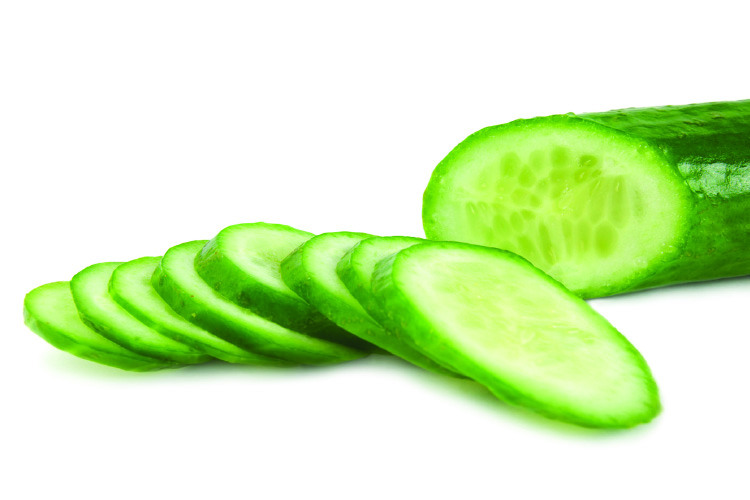Cucumber: Cool and Collected
Cucumbers are scientifically known as Cucumis sativus and belong to the same family as watermelon, zucchini, pumpkin, and other types of squash. Cucumbers, have been cultivated for at least 3,000 years. They originated in the foothills of the Himalayas, probably in or near present day India. They eventually found their way to Egypt and were subsequently cherished by the ancient Romans and Greeks.
- Cucumber has an impressive amount of water (about 96%) that is naturally distilled, which makes it superior to ordinary water
- High in healthy fibre but contains no cholesterol or saturated fats
- Cucumbers contain most of the vitamins you need every day – Vitamin B1, B2, B3, B5, B6, Folic Acid, Vitamin C, Calcium, Iron, Magnesium, Phosphorus, Potassium and Zinc
- The alkalinity of the minerals in cucumber juice effectively helps to regulate the body’s blood pH, neutralising acidity
- Cucumber juice, when taken daily may help to control cases of eczema, arthritis and gout
- The potassium content of cucumber makes it highly useful to balance high and low blood pressure
- The flesh of cucumbers is primarily composed of water but also contains ascorbic acid (vitamin C) and caffeic acid, – help soothe skin irritations and reduce swelling
- The silicon and sulfur content in cucumber juice makes it especially helpful in promoting hair growth
- Cucumber contains erepsin, the enzyme that helps to digest protein
- The hard skin of cucumber is rich in fibre and a variety of minerals including magnesium, silica, molybdenum, and potassium
- An excellent source of silica, which is a trace mineral that contributes to the strength of our connective tissue
- Cucumber’s high water content makes it naturally hydrating – a must for glowing skin
- Cucumber juice is diuretic, encouraging waste removal through urination. This also helps in the dissolution of kidney stones
















